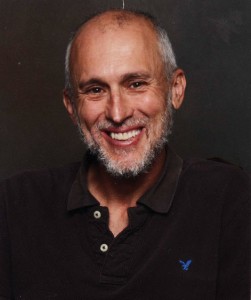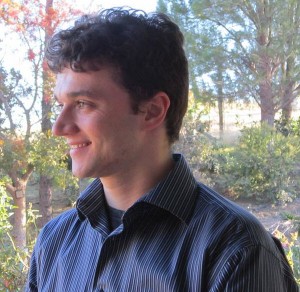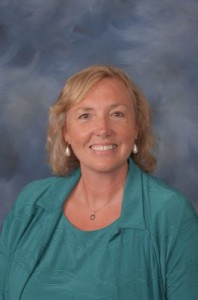Editor’s Note: We are republishing this from last week. Every week on Monday the Vanguard will send all five the candidates a question that they will be asked to respond to by the end of the day on Thursday for a Friday publication. The answers are posted in the order that they were received.
We asked for about 250 words. Given the complexity of the question, some went over, some kept it right at 250 words. Keep that guideline in mind as you read for the sake of fairness.
Question 1: How can the city of Davis balance the following needs: address the fiscal crisis while continuing to provide core services, maintain the amenities that keep Davis Davis, while keeping the community affordable to all citizens?
[divider]
I would approach balancing needs through a process leading to particulars. In general, I favor providing value to promote affordability rather than using unfair rates and taxes to force behavior. I also view as not acceptable the practice of discovering needs in excess of revenue and then expecting the difference to be covered by additional taxes and fees.
A truly balanced budget requires revenue to at least match spending. This involves knowing both where revenue is coming from and what funds are being spent for. These are simple concepts, but it takes effort to apply them. The City’s Finance and Budget Commission could provide much assistance in simplifying and summarizing budget information.
Both revenue and spending need to be examined to learn where funds are coming from, restrictions on use, how much is available for different uses, and what types and amounts of revenue were originally allocated to particular projects and services.
Questions can then be asked about why on-going services from previous budgets now require either new revenue or service cutbacks. It is also possible to track funds moving from routine city responsibilities to other spending, followed by proposals for additional revenue when routine needs are not met. For example, what have city funds originally intended for street maintenance been used for?
Transparency is essential in this process so that all can know what is available. Then clear decisions can be made between competing responsibilities for core services and amenities, and about needs for additional revenue.
This all requires time, effort, and interest. I am now retired, which provides more time. I am willing to do the work. And my record of speaking out on financial issues and of taking action against excessive rate and fee increases shows that my concerns are real.
[divider]
The fiscal stability of our City was the major theme in my campaign in 2010 and continues to be the foremost issue for me. I do not believe that we can cut and tax our way out of our current situation. Current staffing levels are at a 10 year low and our city employees are continuing do more with fewer resources available. The ½ percent sales tax will give us a buffer, but will not solve the problem.
Our city can only be sustainable and remain a unique and valued community with a combination of economic development and fiscal conservancy, while not losing sight of the programs, events and services that our community values. This is the number one challenge of our city council.
While I am proud of my record in these areas, I acknowledge that there is still work to be done. Davis has the ability to become the regional leader in technology, agriculture, and start-up business innovation. I have heavily invested time in fostering our enhanced partnerships with UC Davis and local and regional entities have created many opportunities.
We are making progress, but I understand the need for this process to continue. I also know that continuing the momentum that we have worked so hard to get in motion, is critical. I appreciate the time, experience, and knowledge that I have gained on Council on these important issues, and look forward to applying all of my time invested in the groundwork towards securing our City’s fiscal future.
[Divider]
Our city’s expenses are growing at a faster rate than our revenues, and we must bring the rates of growth of expenses into line with the rates of growth of revenues in order to achieve the goals laid out in the question. To bring alignment and achieve the goals we need a comprehensive approach.
First, we need to expand our revenue base using a three-pronged approach:
1. Densify our downtown via continued mixed-use redevelopment. More residents living in the downtown will attract more retail and visits to downtown. We must remove barriers to redevelopment and incentivize property owners to redevelop by making approval processes more predictable.
2. Keep neighborhood retail spaces full. Create maximum flexibility for the types of retail that can locate in them and provide incentives for shopping center owners to upgrade and maintain attractive retails sites.
3. Move quickly to assess the potential of three sites identified by the Innovation Task Force for innovation parks. A new fiscal model must be used to model the job creation and the revenue generation potential of each site. City Council must lay out clear parameters for the development of these sites to assure they contribute to City priorities.
Second, given that the expansion of our revenue base will take some time to implement, we must address the rates of growth of costs by dealing with rapidly growing employee compensation. Pensions, current employee health insurance, and retiree health care are the key cost drivers. The new City Council must begin immediate discussions to lay out for the community the reality of these cost drivers with a full consideration of all options available to reduce costs.
In addition, while we have cut over 100 FTE (22% of the workforce) in the past 5 years, we have done so in a non-strategic way, largely through attrition. We must analyze whether our current staffing matches our city service needs, and then make adjustments as the analysis dictates.
Davis is a “service provision” organization and employees are our most valuable resource. We must work with those employees to achieve sustainable compensation packages.
Finally, if there are citizens who are struggling to meet increasing City costs we need to be ready to assist them through an expanded, voluntary utility support program. The URAC can help analyze the need. If a need is demonstrated we must expand our current limited support program.
[divider]
In the Short-term, taxes are the only solution to our problem, I would have preferred a 3 quarter cent sales tax in June so we could rip the bandaid off in one fell swoop. As it stands now we will be deferring maintenance on roads a few more months until the parcel tax in November, an absolutely crucial vote that will have dire ramifications if it fails to pass.
The last labor negotiations had a few hiccups but all in all were the biggest step towards solvency our city has ever taken. I think the most important concession we received was having the groups start paying 3% of the employers share of CalPERS. In my mind the city’s share of CalPERS is the single most unsustainable aspect of our fiscal crisis. I have no problem with public employees receiving generous pensions, I just believe they should pay more into their pensions while they are working. The next round of negotiations should have all the bargaining groups match the DPOA 12% contribution and push the employers share even higher to offset rising pension costs.
My long-term vision for the city has always remained the same. In order to provide space for growing companies, create jobs for graduates and generate revenue for the city we should pursue the Innovation Parks Task Force recommendations for business parks. The sales tax that will be passed in June will sunset in 2020 and a goal for our city should be to have enough revenue by then to not have to renew the tax.
[divider]
A balanced approach to the city budget is needed to address the budget deficit. The school district had to address a similar problem over the last 7 years and I am proud of the work the school board did in conjunction with staff and the community to now be on stable ground.
I would like to propose a similar balanced approach for the city budget: strategic and fair cuts and multifaceted revenue enhancements. The city has already cut over 100 positions and decreased staff and services.
I will work with staff to identify any additional areas that can be reduced without loss of core programs. I support the ongoing, difficult but fair decreases to compensation and benefits and look forward to fair increases when finances are improved.
With regards to revenue enhancements, I support the ½ cent sales tax increase as a means to increase revenue while spreading the burden. I am most hopeful for long term solutions by improving our business climate and economic development.
I support a peripheral research/innovation park that will bring and/or keep high paying jobs and increased revenue to the city. I am particularly interested in working with UC Davis to help launch ideas out of the university and into the market to provide jobs for our graduates and finances for our general fund.
With improved economic development, a broader tax base and a balanced approach to the city budget we can maintain core programs and create a healthy and livable community for Davis.





